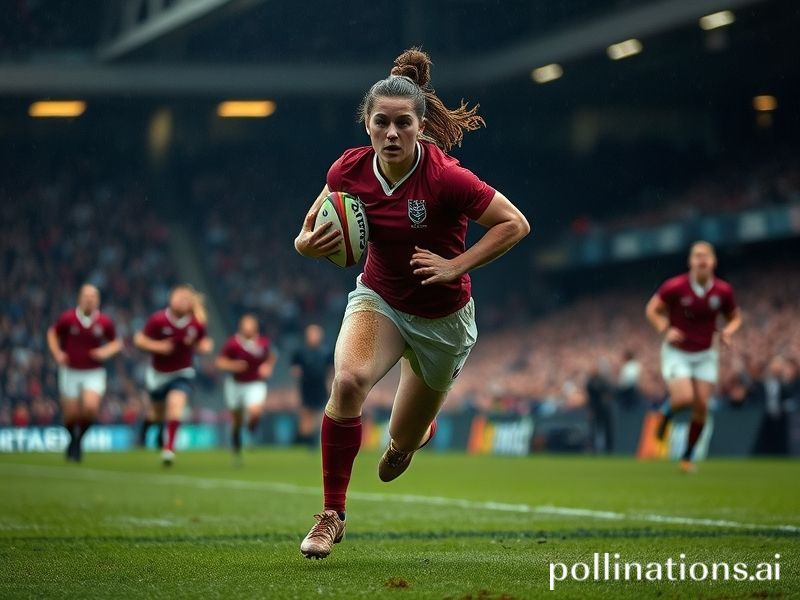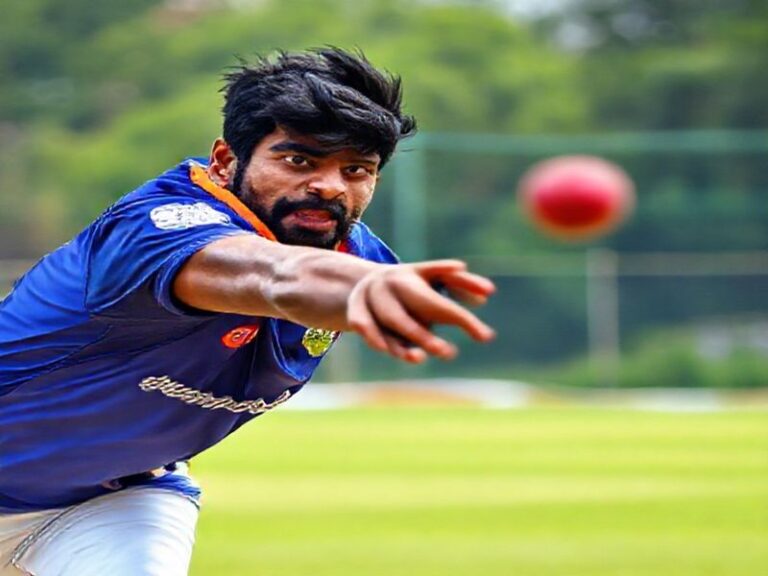Ellie Kildunne: The English Full-Back Quietly Rebooting Global Power—One Try at a Time
Ellie Kildunne and the Quiet Global Coup of Women’s Rugby
If you haven’t heard of Ellie Kildunne, congratulations—you still have a few square centimetres of mental bandwidth not yet colonised by algorithmic sportswear ads. For everyone else, the 24-year-old English full-back is currently doing to women’s rugby what streaming services did to polite conversation: making it louder, faster, and impossible to ignore without seeming deliberately obtuse.
Kildunne, who can sidestep a defender with the nonchalance of a Parisian waiter ignoring your request for tap water, is not merely “good at rugby.” She is the living rebuttal to every crusty national federation that still schedules the women’s game on a Tuesday afternoon in a car park. In the past twelve months she has:
• Beaten Australia, Canada, and New Zealand on three different continents, thereby completing a sort of Commonwealth hat-trick of polite colonial revenge.
• Signed a hybrid contract with the RFU and Harlequins that pays actual money—rumoured to be more than the annual GDP of several Pacific Island nations whose men’s teams the English blithely poach.
• Become TikTok famous for hair-dye tutorials and deadpan mic’d-up clips, proving once again that Gen-Z could monetise a war-crimes tribunal if given ring-light access.
From an international vantage point, Kildunne’s rise is less a feel-good sports yarn and more a geopolitical weather vane. Consider:
France just hosted the most lucrative Women’s Six Nations ever, with TV rights sold to 137 countries, including places whose last exposure to oval balls was a 1992 UNICEF cargo drop. Meanwhile, World Rugby’s commercial revenue from the women’s game has doubled since 2021, which sounds impressive until you remember that doubling very little still leaves you with “some.” Nevertheless, the cartel of blazer-clad administrators who once treated female athletes like decorative hydrangeas have discovered, to their horror, that money can be made without the presence of men in socks up to their armpits.
Kildunne is the poster-child of that rude awakening. She speaks fluent French (thanks to a gap year in Grenoble that apparently involved more tackle practice than wine tasting), markets herself in Mandarin on Weibo—rugby’s fastest-growing social platform—and celebrated last season’s Grand Slam by wearing sunglasses that cost more than Fiji’s junior development budget. In short, she is the soft-power Swiss Army knife post-Brexit Britain didn’t know it possessed.
The broader significance? While governments argue over carbon credits and submarine contracts, a 24-year-old from West Yorkshire is busy redrawing the map of influence one goose-step and try-saving cover tackle at a time. The Pacific Islands are courting her for summer clinics; venture-capital funds in Singapore are sniffing around women’s Premiership clubs like truffle pigs; even the United States, which traditionally treats rugby as a drinking game with optional scrums, has floated the idea of a professional franchise league fronted by Kildunne and a couple of Olympic sevens converts.
And yet, in the grand tradition of human progress, the old guard is resisting with the desperation of a toddler refusing broccoli. Scheduling clashes still relegate women’s fixtures to digital-only broadcasts; a prominent Southern Hemisphere CEO recently mused that “the girls might attract more viewers if they smiled more,” prompting even the RFU’s most arthritic committee member to wince audibly. Meanwhile, online misogynists—those brave keyboard warriors who fear nothing except a functioning gate code—rant that women’s rugby is “slow” while simultaneously watching 47 replays of a 0-0 Champions League group-stage draw.
But the tide is turning, and Kildunne is riding it with the serene inevitability of a Bond villain approaching a self-destruct button. Every try she scores knocks another brick out of the wall that once separated “women’s sport” from simply “sport.” Every sponsorship deal signed in a language other than English nudges the Overton window of what the global marketplace deems valuable. And every teenage girl who dyes her hair electric blue because Ellie did is one more voter the patriarchy failed to account for.
So here we are: a planet simultaneously on fire and under water, and the most hopeful international development may just be a woman who can kick a ball 60 metres, speak three languages, and still find time to remind us—via Instagram Live—that the apocalypse doesn’t have to be joyless. If that’s not a form of soft diplomacy, I don’t know what is.
And if you still haven’t heard of Ellie Kildunne, don’t worry. You will—probably right around the time your local bar starts showing the Women’s World Cup final instead of reruns of men arguing about VAR.







